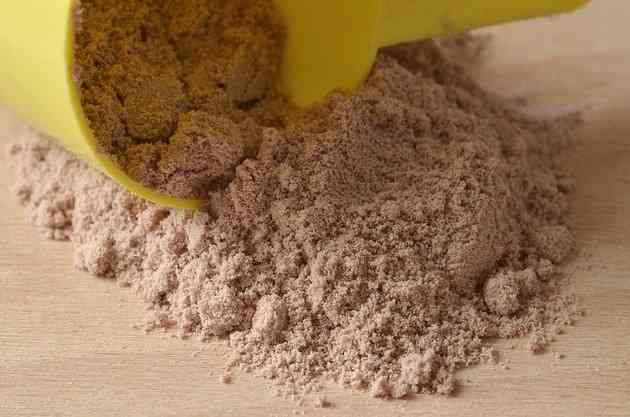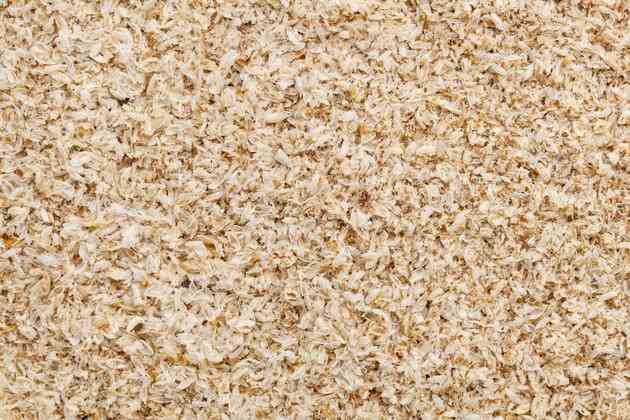The Best Fiber Powder for Constipation

Constipation can have you running to the corner store for laxatives. When taken correctly, fiber supplements are just as helpful as laxatives. Laxatives may cause dependence if you rely on them often enough. Fiber powders are a more natural option that work with your body to promote regularity. With so many brands to choose from, it is important to read the label on fiber powders to find the right mix for you.
 Scoop of fiber powder (Image: CobraCZ/iStock/Getty Images)
Scoop of fiber powder (Image: CobraCZ/iStock/Getty Images)Soluble Fiber
Soluble fiber mixes with water in your intestines and helps remove toxins and cholesterol from your body. While soluble fiber slows digestion in your stomach, it can help move things along elsewhere. Guar gum, xantham gum, beta-glucans, aribinose and pectin are examples of soluble fiber. These form a gel-like substance in the GI tract. Psyllium husk and hemicellulose are common ingredients in fiber powders. These have both soluble and insoluble properties.
Insoluble Fiber
Insoluble fiber is not digested; it merely passes through your system, adding bulk to the stool. Even though it is not exactly broken down, insoluble fiber is still important for regularity because the extra volume in your gastrointestinal tract triggers peristalsis, or movement in your intestines. This movement is what encourages your body to have a bowel movement. Oat bran and wheat bran are insoluble fiber, as are cellulose, lignin and chitin. Look for fiber powders that have both soluble and insoluble fiber for best results.
Water and Fiber
For fiber to have a laxative effect, you must be sure to drink adequate amounts of fluids. Without enough water, fiber can have the opposite effect and actually obstruct your bowels. Have at least a cup of water for each dose of fiber powder you take. Some brands allow you to mix the powder directly in water, which can help you remember to increase your water intake. When taking fiber supplements, up the amount of water you drink throughout the day.
Too Much Fiber
Foods high in fiber include whole grains, lentils, fruits and vegetables. When food is naturally high in fiber, it usually contains both soluble and insoluble forms. Getting adequate fiber in your diet not only promotes regularity, but also helps lower your cholesterol, helps you maintain a healthy weight and improves your glucose tolerance. Along with these benefits, fiber can decrease absorption of certain vitamins and minerals, like iron and calcium. The effect of some medications may also be decreased with a high fiber intake. If you are taking fiber supplements, talk to your doctor or a registered dietitian about the timing of supplements to avoid blocking absorption of other important nutrients.




